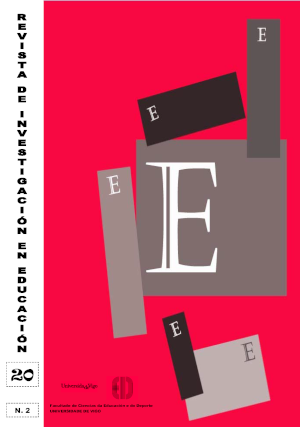Collaborative synergy in inclusive classrooms: an experience of interactive groups with students with intellectual disabilities
DOI:
https://doi.org/10.35869/reined.v20i2.4218Keywords:
Interactive Groups, Learning Communities, Inclusion, Down Syndrome, VolunteeringAbstract
The objective of this article is to describe and analyze the Inclusive Classrooms project, an experience of synergistic collaboration between teachers who teach students with intellectual disabilities and volunteers who participate in the associations of the Down Syndrome Federation in Castilla-La Mancha. The project is based on learning communities conveyed through interactive groups in seven ordinary schools, both public and concerted, in Castilla-La Mancha.
The methodology is qualitative in nature and has used two types of techniques for data extraction. The first, a rubric with 15 measurement indicators through participant observation. The second technique has been a series of group interviews with 52 people participating in the project.
The results show the benefits generated by interactive groups for all students, especially for those with Down syndrome. These students have increased their interactions and have improved their emotional management and their social, communication and curricular skills. Likewise, the participation of volunteers from Down associations within the classroom has strengthened ties with teachers, which has improved the quality of teaching.
Downloads
Downloads
Published
Issue
Section
License
Copyright (c) 2022 Revista de Investigación en Educación

This work is licensed under a Creative Commons Attribution-NonCommercial-NoDerivatives 4.0 International License.
The acceptance of the papers for publication, means that the printing and reproduction rights are owned by the journal. The conditions of use and reuse of content are those established in the Creative Commons CC BY-NC-ND 4.0 license.



